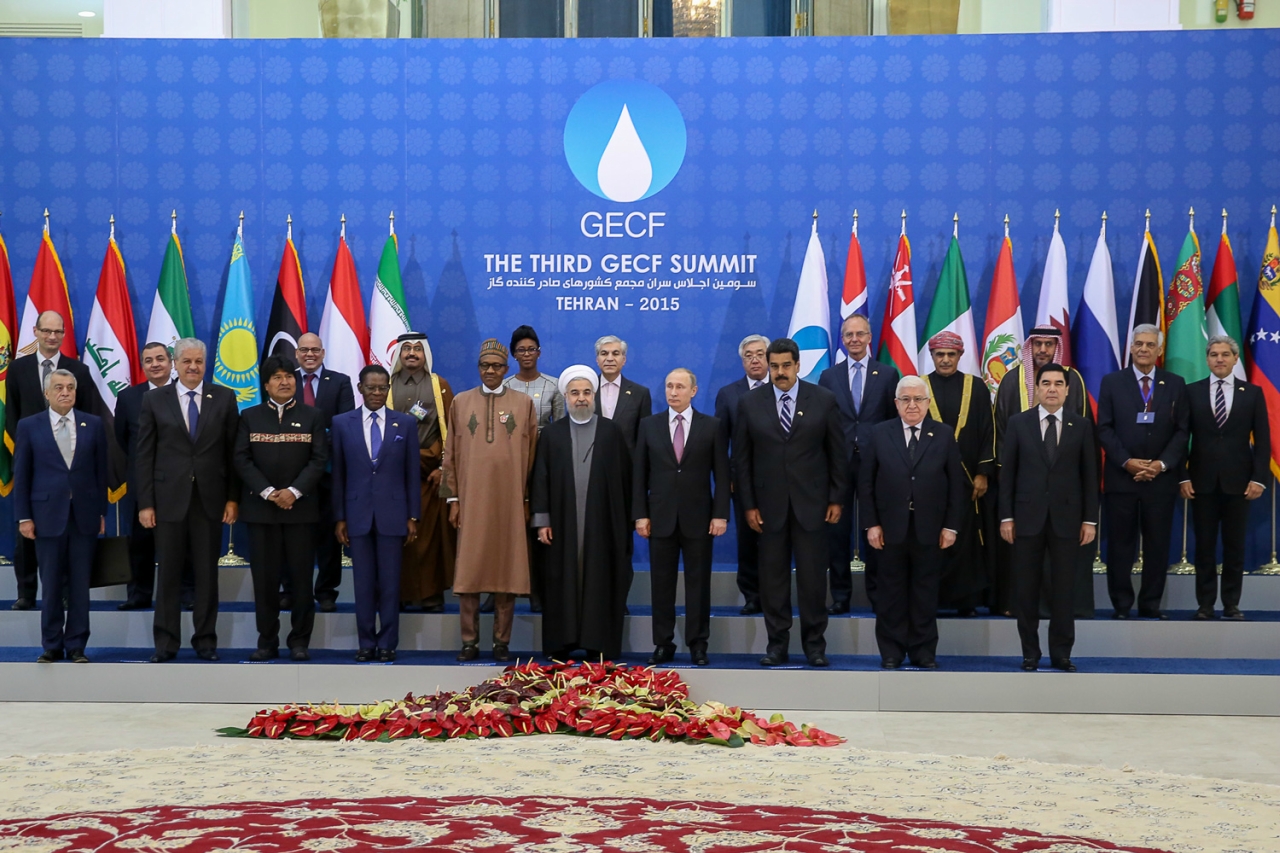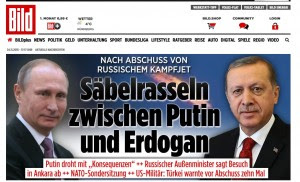Putin in Tehran: Strengthening of Russian-Iranian Alliance
| Nikolai BOBKIN | 26.11.2015 | 08:00 |
Vladimir Putin has visited Iran for the first time in eight years. On Nov. 23 the Russian president gave a speech at the Gas Exporting Countries Forum summit (GECF) in Tehran. The idea to create the GECF originated with Ayatollah Khamenei, who in 2001 suggested that Tehran and Moscow establish an organization of gas cooperation like OPEC. The forum was legally founded in Moscow on Dec. 23, 2008, when the energy ministers of the member countries adopted the statute of the GECF – establishing it as an international association – and signed an intergovernmental agreement.
The GECF’s main focus is on the development of the global gas market. But the gas forum’s member states are not overly concerned about the fact that some gas producers, such as the US, Canada, and Australia, are not part of this process. There are currently 12 countries that are members of the association, and another six that act as observers. Members of the GECF control 42% of the world’s gas production, 67% of gas reserves, 38% of the pipeline trade, and 85% of sales of liquefied natural gas. Expert predictions bear out the importance of the topics being discussed at the forum – they believe that global demand for natural gas will grow by 32% by 2040 – up to 4.9 trillion cubic meters, from 3.7 trillion cubic meters in 2014. It is important to Russia not to lose its market share, and Moscow is acting with this in mind, sitting at the negotiating table with its competitors and coming to civilized agreements.

In his address to the GECF, Russia’s president stated that valuable work is underway with his Asian partners, including China and India. The Russian head of state noted, “We plan to increase deliveries to Asia by 6-30%, up to 128 billion cubic meters.” Putin noted that the draft version of his country’s 2035 national energy strategy includes a significant boost in natural gas production – by 40%. In 2014 his country produced 578 billion cubic meters, but by 2035 it plans to produce 885 billion cubic meters.
Iran understands that it cannot compete with Russia in today’s gas market. Commenting on Tehran’s gas-export plans, Bijan Namdar Zangeneh, Iran’s minister of petroleum, admitted that his country does not have a trunk pipeline that could deliver natural gas to Europe. Thus, Iran is prepared to negotiate with other countries in order to work out a plan to ship Iranian gas to European consumers. Meanwhile, Zangeneh hopes that many companies from Russia will begin working Iran’s oil fields. The minister expressed similar ambitions for the gas sector. Cooperation with Russia will include the exchange of technological innovations in oil and gas production.
Before the meeting between the heads of state attending the forum, Vladimir Putin met with Iran’s Supreme Leader Ayatollah Ali Khamenei and Iranian President Hassan Rouhani. The potential for the relationship between Moscow and Tehran is worrisome for many. Some countries approve of the idea of strategic cooperation between Russia and Iran on regional issues, while others see that as a threat to their own interests.
The prospect of sanctions being lifted has drawn the interest of almost all the world’s major countries, which have their eyes on the domestic market of this country with a population of almost 80 million. In addition, Iran has announced some very ambitious plans for many of its industrial sectors, and a total of over $90 billion is being invested in that country’s highest-priority investment projects. But this does not mean that the Islamic Republic is ready to open its doors to all comers. For example, for the US, as before, all roads to Iran remain closed. In September Ayatollah Khamenei stated that the Iranian government has not held any talks with Washington on issues not related to the Iran nuclear deal, and does not intend to do so in the future. American relations with Iran continue to operate under a “state of emergency” mentality. This year President Obama was forced to extend for one more year the US embargo introduced over 30 years ago. Both sides defend their positions.
But Iran’s leaders have other plans in mind for Russia. This could be seen at Putin’s meeting with Ayatollah Khamenei. Iran’s Supreme Leader rarely receives foreign heads of state, and when he does, that is an indicator of friendly bilateral relations. The conversation between the two leaders lasted longer than planned, more than an hour and a half. They particularly focused on the development of trade and economic cooperation, which still lags far behind the two countries’ blossoming political partnership.
Trade between Russia and Iran totaled only $1.68 billion in 2014. And a mere 0.21% of Russia’s foreign trade in 2014 was conducted with Iran. Russia has invested no more than $12 million in Iran, and Iran only $5.5 million in Russia. And unfortunately no expansion of trade is expected by the end of 2015. This is despite the fact that last fall both parties reached agreement on joint projects worth about $70 billion. Tehran has requested that Iran be granted lines of credit to pay for Russian goods and services. It is possible that that issue was resolved during the meeting between the two leaders. That money for the most part would be used to finance the construction of the 3rd and 4th reactors at the Bushehr Nuclear Power Plant. Loans are also needed if Russia is to build several thermal power plants in Iran, as well as to electrify the railroad in northern Iran, near the town of Gorgan.
As expected, the leaders of Iran and Russia were particularly focused on resolving the conflict in Syria, the joint fight against terrorism, and also military and technical cooperation. Every problem on that list is directly related to their strategic partnership and to the two countries’ willingness to work together on the national security issues that are of greatest importance to them.
Russia’s air operation in Syria, supported by Iran on the ground, has already achieved its first objective. Back in September, the fall of Bashar al-Assad’s government seemed inevitable, but Damascus has stabilized its position and strengthened its control over much of the country. The process of finding a political solution has begun, and Iran is a full participant in that. The fact that the United States is no longer playing a dominant role in the resolution of the crisis in Syria, and that Russia is now returning to the Middle East, is fully compatible with Iran’s independent foreign policy.
Russia and Iran have common interests in the fight against terrorism, not only in the near future, but also in the long term. Both countries want to boot the Islamic State (IS) off the Middle Eastern stage. The military cooperation between Moscow and Tehran aimed at achieving this goal has become an important factor in international relations. Just a few months ago it would have been hard to imagine that Iranian fighter jets would be escorting Russian strategic bombers across Iranian airspace, on their way to launch missile strikes against IS targets in Syria...
But Moscow and Tehran are united by more than just Syria. The US and its allies would like to sever the Russian-Iranian alliance, but those hopes will be dashed. Even over the long term, Iran is unlikely to choose political rapprochement with the West at the expense of its relationship with Moscow.
|
| Tags: Iran Middle East Russia Syria Khamenei Putin http://www.strategic-culture.org/news/2015/11/26/putin-tehran-strengthening-russian-iranian-alliance.html |






